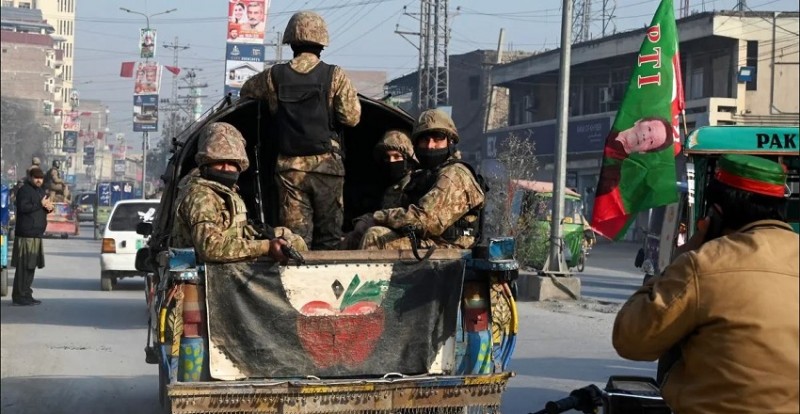
Pakistan is gearing up for its 12th parliamentary election, with 127 million voters set to cast their ballots. The country, with a tumultuous history marked by economic struggles, military interventions, and political upheavals, faces another pivotal moment in its democracy. However, amid the anticipation, violence has struck, with bombings hitting political offices in the southwest, claiming the lives of at least 30 people.
Forty-four political parties are in contention for the 266 seats in the National Assembly, alongside 70 seats reserved for women and minorities. The outcome will determine the formation of the next government, with potential coalitions shaping the political landscape.
Key Players in the Race:
Pakistan's political arena is predominantly male-dominated, with three major parties vying for power: the Pakistan Muslim League-Nawaz (PML-N), the Pakistan Tehreek-e-Insaf (PTI), and the Pakistan People's Party (PPP).
The PML-N, led by two former prime ministers, Nawaz Sharif and his brother Shehbaz Sharif, emerges as a frontrunner. Their ally, the PPP, led by Bilawal Bhutto-Zardari, holds influence in the country's southern regions, albeit facing challenges in securing a significant mandate.
However, the absence of PTI's founder, Imran Khan, a prominent figure in Pakistani politics, has stirred widespread discussion. Khan's imprisonment and legal troubles, including multiple criminal convictions, have barred him from contesting elections, leaving his party grappling with the repercussions.
Key Issues at Stake:
The incoming government faces a daunting task ahead, including reviving the economy, navigating relations with Afghanistan, addressing infrastructure deficiencies, and tackling religious and separatist militancy.
Pakistan's economy relies heavily on external support to avert crises, with concerns over inflation and rising poverty levels. Moreover, enduring challenges such as energy shortages and infrastructure decay persist, underscoring the urgency for comprehensive reforms.
Regional dynamics also pose significant challenges, with tensions with Afghanistan escalating and internal security threats from militant groups persisting. Baluchistan province, in particular, remains a hotspot for insurgencies, further complicating the security landscape.
Public Sentiment and Expectations:
The mood among Pakistanis reflects a mixture of frustration and skepticism towards the political establishment. Despite hopes for change, many express disillusionment with recurring political discord and stagnant living standards.
Khan's disqualification and legal battles have polarized opinions, with his supporters expressing discontent over what they perceive as unjust treatment. Meanwhile, the return of Nawaz Sharif, accompanied by the overturning of his convictions, has bolstered his electoral prospects, prompting speculation over his potential return to power.
However, concerns persist regarding the fairness of the electoral process, with rights groups and experts highlighting potential irregularities and anti-establishment sentiments. Amid these challenges, mobilizing voter turnout and forging cohesive coalitions to enact meaningful reforms remain critical tasks for Pakistan's political future.
In essence, Pakistan stands at a crossroads, with the outcome of the election poised to shape its trajectory in the coming years. As the nation navigates complex internal and external dynamics, the need for inclusive governance and sustainable reforms has never been more pressing.
Pakistan's 2024 Election: A Tug-of-War for Power and Regional Stability
Pakistan Election Gears Up: 44 Parties Vie for Parliamentary Seats